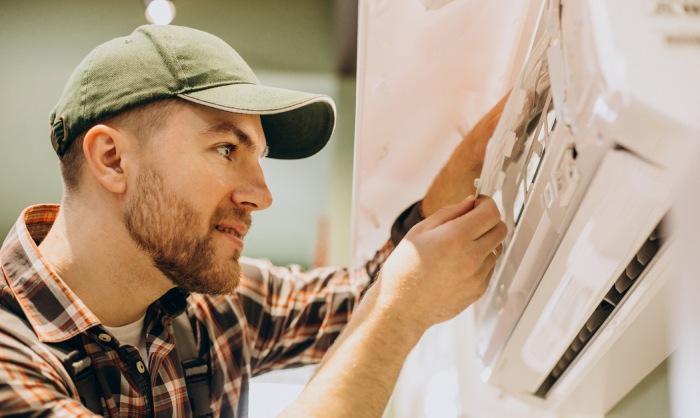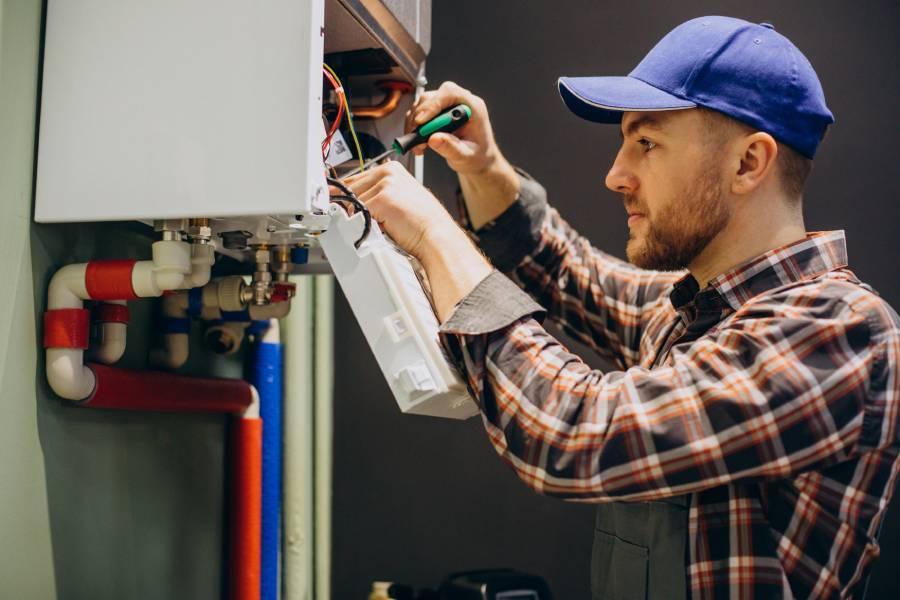The HVAC industry is undergoing a significant transformation as innovative technologies and sustainable practices become the focal points of home heating solutions. Among the core components of HVAC systems, gas furnaces, and electric furnaces are pivotal in shaping the future of home comfort. These heating options are evolving in efficiency and becoming smarter, eco-friendly, and adaptable to modern living needs. This article delves into how these heating systems revolutionize homes and what homeowners can expect in the coming years.
A Paradigm Shift in Heating Systems
The HVAC industry is shifting gears to meet the rising demand for energy-efficient and environmentally sustainable solutions. This transformation is evident in the evolution of both gas and electric furnaces.
- Gas Furnaces: The Traditional Choice Gets a Modern Makeover Gas furnaces have been a cornerstone of home heating for decades due to their reliability and cost-effectiveness. However, today’s gas furnaces are far from the traditional models of the past. Modern advancements include:
- High-Efficiency Models: Many gas furnaces now come with efficiency ratings as high as 98%, thanks to condensing technology that captures and uses heat that would otherwise be lost.
- Smart Thermostats: Integration with smart home systems allows users to control the furnace remotely, optimizing energy use and cutting costs.
- Eco-Friendly Options: New low-NOx (nitrogen oxide) gas furnaces significantly reduce emissions, aligning with stringent environmental standards.
- Electric Furnaces: A Rising Star in Sustainable Heating Electric furnaces are gaining traction, particularly in areas where renewable energy sources like solar and wind power are prevalent. They are no longer seen as secondary options but as viable alternatives for eco-conscious homeowners.
- Powered by Renewable Energy: Electric furnaces offer a carbon-neutral heating solution when paired with solar panels or wind turbines.
- Advancements in Heat Pumps: Many electric furnace systems now incorporate heat pump technology, improving efficiency in colder climates.
- Minimal Maintenance: Unlike gas furnaces, electric furnaces require fewer repairs and have a longer lifespan, making them cost-effective in the long term.
Smart HVAC Systems: The Convergence of Gas and Electric Furnaces
The advent of smart home technology is bridging the gap between gas and electric furnaces, allowing homeowners to enjoy a seamless and efficient heating experience.
- Hybrid Systems: These systems combine gas and electric furnaces to offer the best of both worlds. For instance, during extremely cold days, the gas furnace kicks in, while the electric furnace operates during milder conditions to save on costs.
- AI-Driven Controls: Artificial intelligence is enabling more innovative HVAC systems that learn user preferences, weather patterns, and energy pricing to optimize furnace operation automatically.
- Remote Monitoring: IoT (Internet of Things) integration ensures that gas and electric furnaces can be monitored and managed from anywhere. This provides homeowners with real-time insights into energy consumption and system health.
Sustainability and the Push for Decarbonization
One of the most significant trends influencing gas and electric furnaces is the global push for decarbonization. Governments and environmental organizations are advocating for heating solutions that minimize carbon footprints.
- Government Incentives and Rebates
- Many governments offer tax credits and rebates for homeowners who install high-efficiency gas or electric furnaces. These incentives aim to reduce greenhouse gas emissions while making sustainable heating more affordable.
- Programs like ENERGY STAR certification help consumers identify furnaces that meet stringent energy efficiency standards.
- Carbon Capture Technology in Gas Furnaces
- Emerging technologies allow gas furnaces to capture and store carbon emissions, reducing their environmental impact.
- These innovations ensure that gas furnaces remain a viable option even as regulations on fossil fuels tighten.
- Electric Furnaces and Renewable Integration
- With renewable energy becoming more accessible, electric furnaces are increasingly viewed as the heating solution of the future.
- Homeowners can pair their electric furnaces with solar panels, battery storage systems, and smart grids to create a self-sufficient, eco-friendly home.
Cost Comparisons: Gas Furnace vs. Electric Furnace
The choice between a gas furnace and an electric furnace often comes down to cost. However, modern developments are changing the traditional cost dynamics.
- Installation Costs
- Gas furnaces typically have higher installation costs due to the need for venting and access to a natural gas supply.
- Electric furnaces are simpler to install and are often the preferred choice for retrofitting older homes.
- Operational Costs
- Gas furnaces are more economical in areas where natural gas is abundant and affordable.
- Electric furnaces can become more cost-effective when paired with renewable energy sources or in regions with lower electricity rates.
- Long-Term Savings
- High-efficiency gas and electric furnaces with heat pumps can significantly reduce energy bills.
- Many homeowners find that the reduced maintenance costs of electric furnaces offset their higher operational costs.
Innovations in Furnace Technology
The heating industry is rife with innovations redefining how gas and electric furnaces operate. Here are some of the most exciting developments:
- Zoned Heating Systems
- Gas and electric furnaces now support zoned heating, allowing homeowners to heat specific areas of their homes. This feature is particularly useful for larger homes, where heating unused spaces can waste energy.
- Gas and electric furnaces now support zoned heating, allowing homeowners to heat specific areas of their homes. This feature is particularly useful for larger homes, where heating unused spaces can waste energy.
- Wi-Fi-Enabled Controls
- Smart thermostats and mobile apps give homeowners unprecedented control over their heating systems. Whether you own a gas or electric furnace, you can now adjust temperatures and schedules from your smartphone.
- Smart thermostats and mobile apps give homeowners unprecedented control over their heating systems. Whether you own a gas or electric furnace, you can now adjust temperatures and schedules from your smartphone.
- Advanced Air Filtration
- Modern furnaces have high-grade air filtration systems that improve indoor air quality. This is especially important for households with allergies or respiratory issues.
- Modern furnaces have high-grade air filtration systems that improve indoor air quality. This is especially important for households with allergies or respiratory issues.
- Noise Reduction Technology
- New gas and electric furnace models are designed to operate quietly, enhancing the comfort of your living environment.
Challenges and the Road Ahead
While gas and electric furnaces are becoming more advanced, challenges remain. When choosing a heating system, homeowners must weigh upfront costs, environmental impact, and energy efficiency.
- The Role of Energy Storage
- As electric furnaces gain popularity, efficient energy storage solutions become critical. Battery systems will likely play a significant role in ensuring consistent heating, especially during power outages.
- As electric furnaces gain popularity, efficient energy storage solutions become critical. Battery systems will likely play a significant role in ensuring consistent heating, especially during power outages.
- Fuel Transition for Gas Furnaces
- The HVAC industry is exploring alternative fuels like hydrogen to power gas furnaces. This could make gas furnaces a cleaner option without compromising performance.
- The HVAC industry is exploring alternative fuels like hydrogen to power gas furnaces. This could make gas furnaces a cleaner option without compromising performance.
- Consumer Education
- Many homeowners are unaware of the latest advancements in gas and electric furnaces. Educating consumers about their options is essential for driving the adoption of these technologies.
The Future of Heating: A Balanced Approach
The debate between gas and electric furnaces is unlikely to end anytime soon. However, the future of home heating is likely to involve a balanced approach that leverages the strengths of both systems.
- Hybrid Solutions
- Hybrid furnace systems are becoming popular for homeowners looking to maximize efficiency and minimize environmental impact. By combining gas and electric furnaces, these systems provide optimal performance across a range of conditions.
- Hybrid furnace systems are becoming popular for homeowners looking to maximize efficiency and minimize environmental impact. By combining gas and electric furnaces, these systems provide optimal performance across a range of conditions.
- Integration with Smart Grids
- As smart grids become more widespread, gas and electric furnaces will benefit from dynamic energy pricing and demand response programs. This will make heating systems more adaptable and cost-efficient.
- As smart grids become more widespread, gas and electric furnaces will benefit from dynamic energy pricing and demand response programs. This will make heating systems more adaptable and cost-efficient.
- Focus on Sustainability
- The HVAC industry is committed to sustainability, with innovations like recyclable furnace components and carbon-neutral production processes gaining traction.
Final Thoughts
The future of HVAC is bright, with gas and electric furnaces leading the charge toward more innovative, sustainable home heating solutions. As technology evolves, homeowners can expect even greater efficiency, convenience, and environmental benefits from their heating systems. Whether upgrading an existing furnace or building a new home, the advancements in these systems ensure that you’ll stay warm and comfortable while reducing your carbon footprint.
By staying informed about the latest trends and innovations, you can make a well-informed decision that meets your needs and aligns with your values. After all, the furnace you choose today will shape the comfort and sustainability of your home for years to come.










